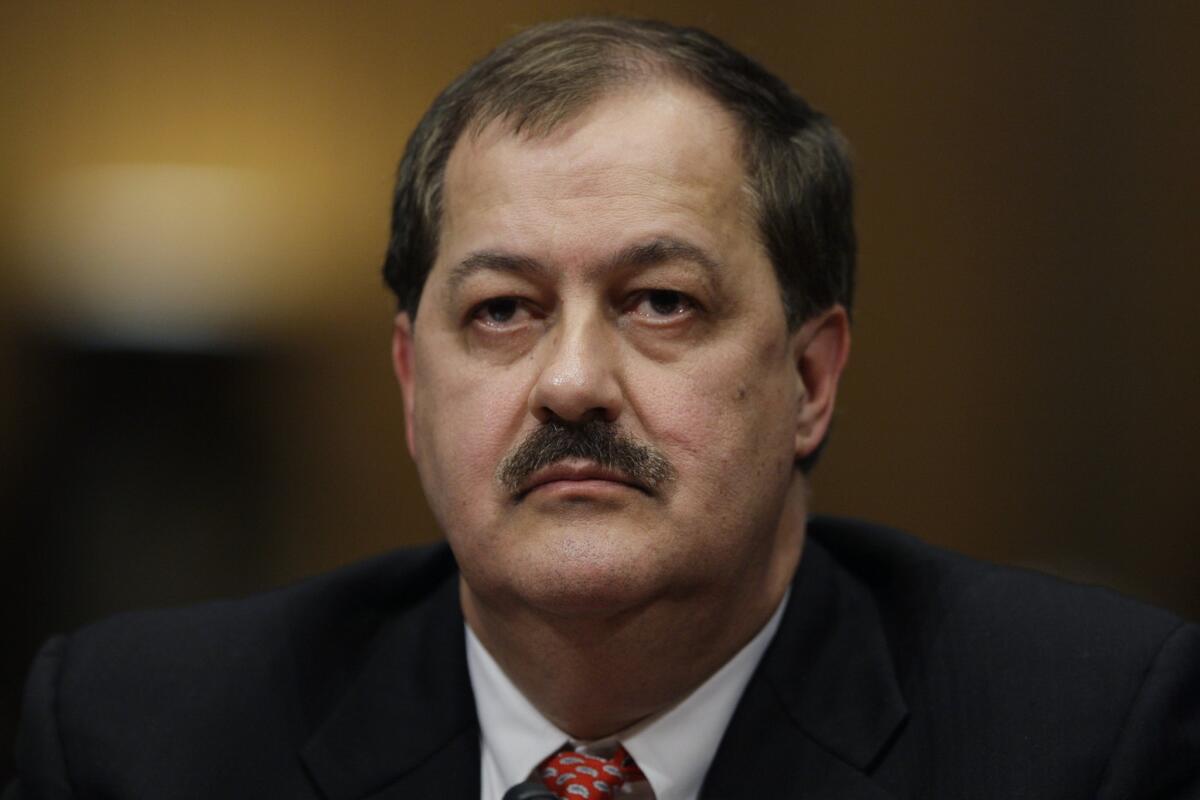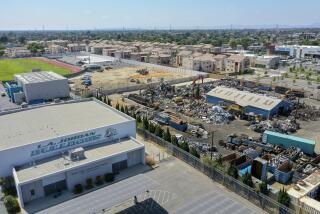Former Massey Energy chief executive indicted in 2010 mine explosion

- Share via
The former chief executive of coal giant Massey Energy Co. has been indicted on federal charges stemming from a 2010 coal mine explosion that killed 29 people.
Donald L. Blankenship was indicted Wednesday by a West Virginia grand jury and charged with four counts, including conspiracy, fraud and making false statements. He is the highest-ranking Massey Energy official to be indicted in the explosion to date.
The company had been cited for repeated mine safety violations in the years leading up to the April 5, 2010, explosion at its Upper Big Branch mine, the worst U.S. mining disaster since 1984. Massey Energy agreed to pay a $209-million settlement as a result.
In a 43-page indictment filed Thursday, federal prosecutors say Blankenship conspired to violate federal mine safety standards and to impede federal mine safety officials at the company’s Upper Big Branch mine in southern West Virginia. They also accuse him of making false statements to the U.S. Securities and Exchange Commission and of securities fraud.
According to prosecutors, Blankenship was fully aware of the mine’s long record of safety violations related to poor ventilation and the accumulation of explosive coal dust, two factors that were said to be behind the deadly explosion.
Booth Goodwin, U.S. attorney for the southern district of West Virginia, alleged in the indictment that Blankenship received daily safety law violation reports that showed the mine was committing hundreds of violations each year.
Blankenship and others worked to flout federal mine safety laws, instructing subordinates to violate regulations and even putting into place an advance warning system to alert mine employees when federal inspections were expected, the indictment says.
Prosecutors also claim that Blankenship and other company executives filed statements with the SEC and in press releases that claimed the company “does not condone any violation” of mine safety regulations and that officials “strive to be in compliance with all regulations at all times,” which they say was false.
According to the indictment, Blankenship maintained a laser focus on profits despite his knowledge of numerous safety violations, providing handwritten messages to executives with instructions to “not cut any overcasts,” or ventilation control structures, in the mine so as to produce coal more quickly, and to “run this sections [sic] like coal mines, not like construction jobs,” meaning miners should spend less time on construction of ventilation control structures and supports for the mine’s walls and more on mining the coal.
“Please be reminded that your core job is to make money,” Blankenship wrote in a memo to the company’s mining group presidents in February 2009. “To do this, you have to run coal at a low cost, ship your orders and control your quality.”
Blankenship also allegedly insisted on receiving a faxed report every 30 minutes detailing the coal production on certain sections of the mine and reasons for any production delays, and every two hours for other sections.
Blankenship’s indictment follows the conviction of at least two other top mine executives.
The former superintendent of the Upper Big Branch Mine, Gary May, pleaded guilty in 2012 to conspiring to impede mine safety enforcement. May admitted to using code phrases to give advance warning of inspections, and falsifying mine examination records. He was sentenced to 21 months and a $20,000 fine, the Associated Press reported.
The company’s former president, David C. Hughart, pleaded guilty in 2012 to conspiracy to defraud the government and a misdemeanor count of conspiracy to violate U.S. mine safety regulations. Hughart was sentenced to 42 months in jail and three years of probation agreed to cooperate with prosecutors.
Hughart implicated Blankenship during his sentencing hearing in 2013, saying the then-chief executive was responsible for ordering the advance warnings about mining inspections between 2000 and 2010.
For more breaking news, follow me @cmaiduc
More to Read
Sign up for Essential California
The most important California stories and recommendations in your inbox every morning.
You may occasionally receive promotional content from the Los Angeles Times.










